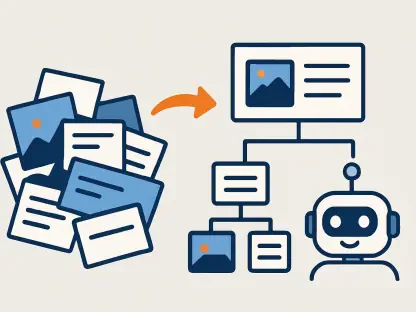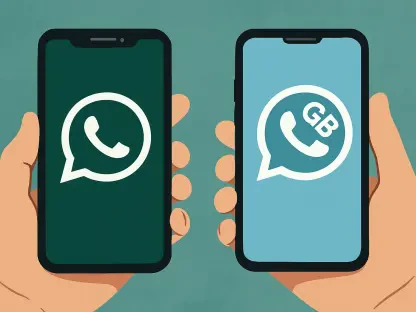Apple’s impending iOS 18.2 update is set to bring significant changes to iPhone users, particularly with the introduction of an option to set default apps for calling and messaging. This feature, expected to be available in early December 2023, represents a notable shift in Apple’s long-standing ecosystem. The new development goes beyond anticipated changes in browsers, password managers, and app stores, surprising users and commentators alike.
Enhanced Default Calling Features
Integration of Encrypted VoIP Apps
The ability to choose default apps for calling extends beyond current options to include end-to-end encrypted VoIP apps like WhatsApp and Signal. This change enhances user security and privacy by ensuring that telephone calls can bypass potential vulnerabilities in traditional cellular networks. Simply put, calls made via these apps are harder for malicious actors to intercept, a point underscored by CISA, the US government’s cybersecurity agency. The agency advises using vetted secure messaging apps with end-to-end encryption to mitigate interception risks, a criterion now satisfied by opting for these newly available default calling applications.
Previously, users could only manually select preferred calling options for individual contacts, which was inconvenient. The updated system offers a streamlined, once-and-forget setting that will automatically direct call attempts through the chosen default app whenever a contact’s phone number is tapped. This improvement not only increases convenience but also fortifies the security of private and sensitive communications, making it a valuable addition for many iPhone users. The combination of ease of use and enhanced security makes this a welcome update amid growing concerns over digital privacy.
Implications for User Convenience and Security
Thus, the introduction of iOS 18.2 is not just about user convenience; it’s a substantial boost in securing communications. Messaging apps like WhatsApp already allow unencrypted voice calls to people or businesses not saved as contacts, which further underlines their utility as potential default calling apps under the new update. Currently, FaceTime Audio offers encrypted calling, but only within Apple’s ecosystem, limiting its broader usability. By allowing third-party apps, Apple broadens the scope of secure communication beyond its own services.
This significant update reflects global trends towards prioritizing digital security and user autonomy over proprietary ecosystems. Particularly in regions with higher cybersecurity threats, such as parts of Asia and Africa, the ability to secure voice calls via end-to-end encryption is critical. This shift also signifies Apple’s recognition of the need to adapt its offerings to meet the diverse security needs of its global user base. In essence, the 18.2 update underscores Apple’s commitment to embracing more inclusive and versatile security solutions.
Broader Implications for the Mobile Ecosystem
Global Trends in Digital Security
The iOS 18.2 update is emblematic of a broader global move to prioritize digital security and user autonomy. With cyber threats becoming increasingly sophisticated, there has been a rising demand for secure communication tools. By enabling third-party apps like WhatsApp and Signal to be set as default calling apps, Apple responds to this demand, providing users with the means to safeguard their voice communications against interception. This trend is particularly pronounced in regions where digital security threats are more volatile, such as in parts of Asia and Africa.
Moreover, this update positions Apple favorably in a competitive market where users are increasingly aware of and concerned about their privacy and security. By offering enhanced security features that accommodate a diverse range of applications, Apple strengthens its appeal to a global audience. This alignment with global security trends not only serves user interests but also helps Apple maintain its competitive edge in the evolving technological landscape. As security concerns grow, features like those introduced in iOS 18.2 are likely to become expected standards for tech leaders.
User Autonomy and Control
Apple’s impending iOS 18.2 update, set to arrive in early December 2023, promises significant changes for iPhone users. One of the most anticipated features is the option to set default apps for calling and messaging. This is a major departure from Apple’s traditional approach, where the company has tightly controlled which apps can be set as defaults within its ecosystem. The ability to customize these fundamental smartphone functions gives users more freedom and flexibility, and it could fundamentally alter how they interact with their devices.
While many expected updates to browsers, password managers, and app stores, the introduction of default calling and messaging apps has surprised both users and tech commentators. This move showcases Apple’s willingness to adapt and respond to user demands, potentially setting a new standard in the smartphone industry. Whether you’re a casual user or a tech enthusiast, this update is likely to change how you use your iPhone daily. The broader implications of these changes could potentially influence how other tech companies design their own ecosystems as well.









